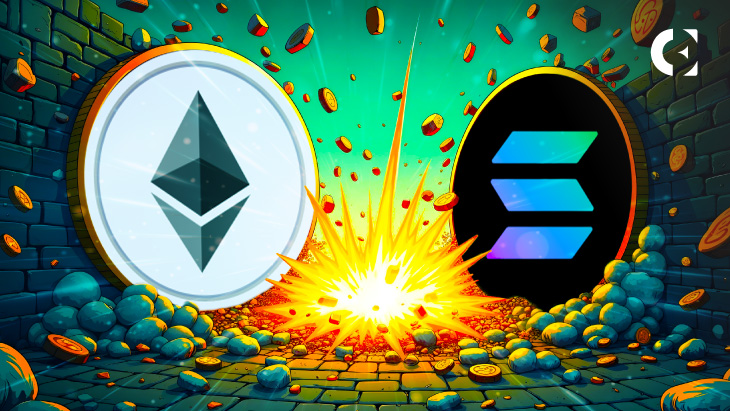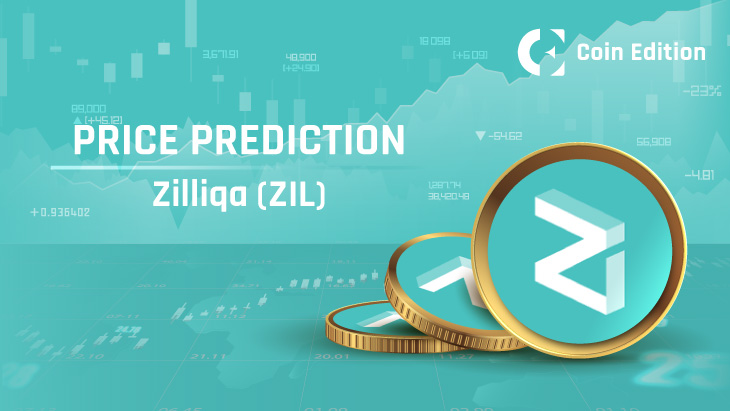- The developers of Ethereum and Solana clash over the best blockchain, with each supporting their superiority.
- Ethereum highlights its decentralization, security, and robust Layer-2 ecosystem
- Solana emphasizes on speed, low fees, and better performance without needing L2s.
In the cryptocurrency ecosystem, both Ethereum and Solana have garnered mass attention for several reasons, including their security, scalability, adoption, etc. However, this time, the blockchain giants have garnered attention with their debate over their superiority.
A fresh wave of debate over the best Layer-1 blockchain broke out on X on Saturday as Ethereum developer Rip.eth and Solana co-founder Anatoly Yakovenko laid out arguments concerning their respective chains, reigniting the discussion on the contrasting philosophies behind Ethereum and Solana.
‘Ethereum Is the Obvious Base Layer’
In his X post, the Ethereum developer Rip.eth initiated the debate by declaring that Ethereum is the best choice among Layer-1s. He further emphasized on its unmatched decentralization, security, neutrality, and uptime, calling other L1s “a compromise.”
He added that Ethereum dominates in smart contract deployment, stablecoin value, and DeFi TVL. According to Rip, Ethereum Layer-2s or L2s offer more advantages as they are customizable, cheaper, and optimal for speed and privacy, while still being secured by Ethereum’s mainnet. Further, Rip stated that Ethereum is the natural choice for enterprises and institutions. ‘Tokenize on the L1, or launch your own L2. Ethereum is obvious,” he stated.
Related: Vitalik Buterin Talks Ethereum L2: What Makes It So Transparent?
‘Solana Is the Best Choice’
Meanwhile, Solana co-founder Anatoly Yakovenko responded swiftly to the tweet, using similar dialogues as that of Rip. Yakovenko argued that Solana is the most decentralized, secure, and neutral chain, unlike Ethereum and emphasized that it maintains low fees without relying on L2s.
Further, Yakovenko stated that Solana is the most active smart contract network by transaction count and handles the majority of DeFi and stablecoin activity and asserted that Solana is the default chain for revenue generating dApps, and concluded the argument y stating, ‘Solana is obvious.
Related: Solana Blockchain Has an Abundance of Spam Transactions
Community Reaction
As the debate gained attention, several members from both sides shared their opinions. An X user 0xlol underscored the difficulty of building truly decentralized and censorship-resistant systems like Ethereum and cautioned that while some chains boast high throughput, their resilience is often untested. This statement was acknowledged by Rip, who commented, “Very hard indeed.”
In response to the Solana founder’s claim, analyst Ali Martinez expressed agreement with his view, though some challenged Solana’s claim to being the most decentralized chain, pointing to concerns over validation concentration and outages..
This back and forth verbal duel not only reflects a divide in blockchain architecture but also highlights the views perceived by members in the ecosystem. Though the blockchains continue to evolve, the disagreement reveals the pros and cons of each model and how the future of Web3 would be shaped by real world use cases and developer adoption rather than ideals.
Disclaimer: The information presented in this article is for informational and educational purposes only. The article does not constitute financial advice or advice of any kind. Coin Edition is not responsible for any losses incurred as a result of the utilization of content, products, or services mentioned. Readers are advised to exercise caution before taking any action related to the company.







